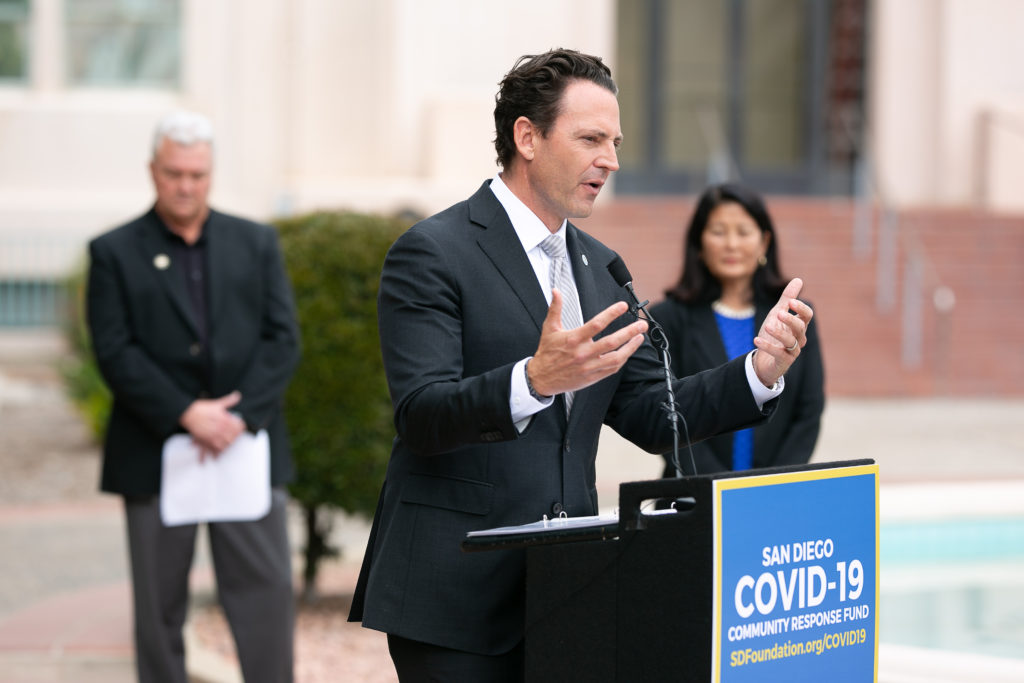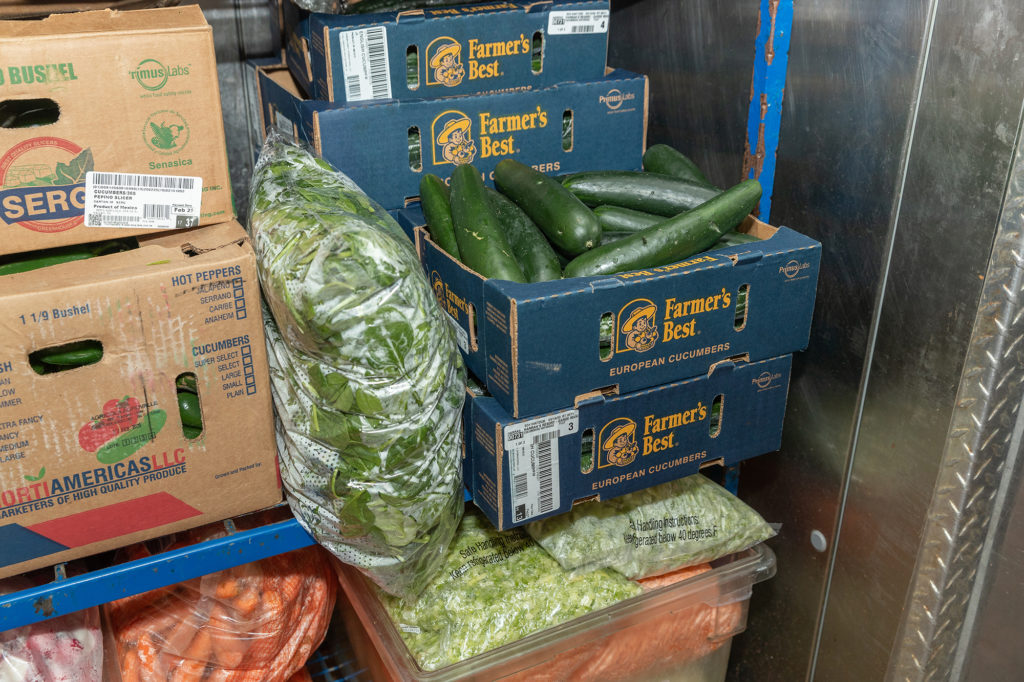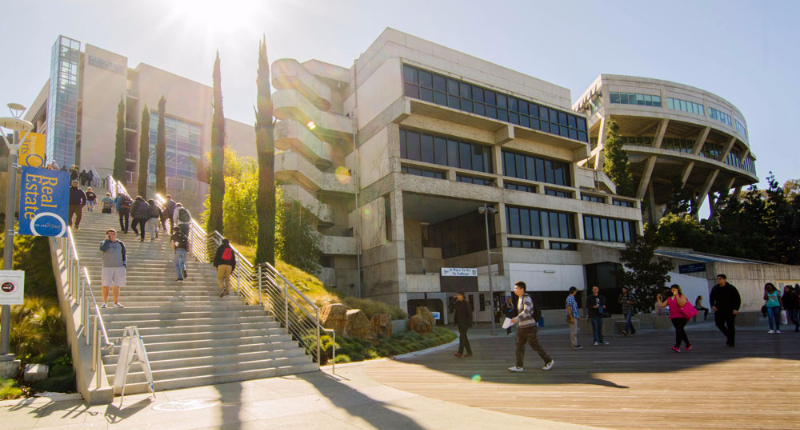Daily Business Report-March 18, 2020
Censoteria, a card game developed at La Luz in Sonoma, is based off of the familiar La Loteria game and helps to engage community members with civics, the census and public services. (Photo by Anne Wernikoff for CalMatters)
Caronavirus, citizenship and the census:
California fears an undercount
California is spending nearly $200 million to reach historically undercounted communities for the 2020 census, which officially began last week — but it may not be enough to combat the coronavirus, CalMatters’ Elizabeth Castillo reports.
As the virus upends every facet of daily life and shuts down planned outreach events, it’s unclear how many Californians will be motivated to respond to the census.
At stake: federal funds and representation in Congress. Another hurdle: mounting government distrust sparked by President Trump’s anti-immigrant rhetoric, Castillo writes.
Read Elizabeth Castillo’s report.
______________________________

Researchers develop safety feature that prevents
lithium metal batteries from catching fire
UC San Diego School of Engineering
Nanoengineers at the University of California San Diego developed a safety feature that prevents lithium metal batteries from rapidly heating up and catching fire in case of an internal short circuit.
The team made a clever tweak to the part of the battery called the separator, which serves as a barrier between the anode and cathode, so that it slows down the flow of energy (and thus heat) that builds up inside the battery when it short circuits.
The researchers, led by UC San Diego nanoengineering professor Ping Liu and his Ph.D. student Matthew Gonzalez, detail their work in a paper published in Advanced Materials.
“We’re not trying to stop battery failure from happening. We’re making it much safer so that when it does fail, the battery doesn’t catastrophically catch on fire or explode,” said Gonzalez, who is the paper’s first author.
______________________________

San Diego leaders launch COVID-19
Community Response Fund
A coalition of regional partners, including San Diego County Supervisor Nathan Fletcher, San Diego Gas & Electric (SDG&E), The San Diego Foundation, United Way of San Diego County and San Diego & Imperial Counties Labor Council, have joined together to create the San Diego COVID-19 Community Response Fund.
As of Monday’s launch, the fund is seeded with $1.3 million, including $1 million from SDG&E and $300,000 from The San Diego Foundation. The fund will rapidly deploy flexible resources into the community to support programs and organizations addressing the effects of the coronavirus outbreak across San Diego County. Individuals and organizations are encouraged to donate via SDFoundation.org/COVID19.
Hosted and administered by The San Diego Foundation, the San Diego COVID-19 Community Response Fund will receive donations and make emergency grants to nonprofit organizations supporting impacted communities, particularly those that are disproportionately affected by this global pandemic and its economic consequences.
Grant funding will focus on three critical areas: food security, rental and utility assistance, and income replacement or gap funding.
To donate to the San Diego COVID-19 Community Response Fund, visit SDFoundation.org/COVID19.
______________________________

Researchers discover how plants
sound the alarm about danger
Just like humans and other animals, plants have hormones. One role of plant hormones is to perceive trouble—whether an insect attack, drought or intense heat or cold—and then signal to the rest of the plant to respond.
A multicenter team led by current and former investigators from the Salk Institute is reporting new details about how plants respond to a hormone called jasmonic acid, or jasmonate. The findings, which were published in Nature Plants on March 13, 2020, reveal a complex communication network. This knowledge could help researchers, such as members of Salk’s Harnessing Plants Initiative, develop crops that are hardier and more able to withstand assault, especially in an era of rapid climate change.
______________________________
4 key coronavirus insurance coverage battlegrounds
Property and liability insurers are bracing for an uptick in claims across virtually every line of coverage due to the outbreak of the novel coronavirus, as companies lose money by shutting down large-scale events and businesses face supply chain troubles.
Law360, a subscription-based, legal news service operated by the Portfolio Media company, a subsidiary of LexisNexis, looks at four types of coverage that are especially ripe for disputes: Event Cancellation, Business Interruption, Workers’ Compensation, and General Liability. Click here for the report.
______________________________

Harrah’s Resort donates over 8,000 pounds
of produce to San Diego Food Bank
Harrah’s Resort Southern California has donated over 8,000 pounds of produce and refrigerated items to the San Diego Food Bank as well as 805 pounds to The Foundry Escondido, making sure perishable resources do not go to waste.
“During this time of uncertainty, we want to ensure that families, seniors and children in need have access to food,” said Bo Mazzetti, chairman of the Rincon Band of Luiseño Indians. “We are proud to partner with the San Diego Food Bank and The Foundry Escondido and assist in their missions to fight hunger throughout the communities they serve.”
The resort, which has a hotel and casino, has no reported cases of COVID-19, but the Rincon Band of Luiseno Indians decided to temporarily close as a precautionary measure while the tribe evaluates the situation, a statement on the website said. The closure is for two weeks.
______________________________
San Diego Women’s Week 2020
Rescheduled to Aug. 24-28
New Event Dates and Venues:
Opening Night — Aug. 24, Petco National Support Center, 6 to 8:30 p.m.
Women and Wine — Aug. 26, Bernardo Winery, 5:30 – 8:30 p.m.
Leadership Conference — Aug. 28, Town and Country 8:30 a.m. – 4:30 p.m.
For more details, visit www.sdbusinesschamber.com.
______________________________
Commentary: Why journalism matters
By Dan Walters |CalMatters Columnist
This is Sunshine Week, which pays homage to the principle that the public’s business should be public even though officials often try to keep us in the dark about their unsavory activities.
By happenstance, last week provided Californians with four cogent examples of why independent journalism is a vital bulwark against shenanigans and coverups.
The first involves California’s woebegone bullet train project and Los Angeles Times reporter Ralph Vartabedian, who has broken story after story about the project’s dipsy-doodle financing and management — or, more accurately, mismanagement.
Vartabedian’s latest saga of the train to nowhere describes how employees of the project’s lead contractor, WSP, were disciplined if they “failed to toe the company line” that the project was proceeding smoothly.
“I was told to shut up and not say anything,” Vartabedian quotes Mark Styles, who had been hired by WSP as a senior scheduler in its Fresno office. “I was told that I didn’t understand the political arena the project was in. I told them I am not going to shut up. This is my job.”
Vartabedian wrote, “The atmosphere described by Styles has been corroborated by a half dozen current and former senior officials knowledgeable about the project’s Fresno office.”
The second example comes from the Sacramento Bee and reporter Wes Venteicher, who specializes in the vast state bureaucracy.
His article revealed that the warden of Mule Creek State Prison, Joe Lizarraga, retired with a $433,000 lump sum payment and an $11,500 monthly pension while under investigation for theft and trying to cover up his actions.
Venteicher used the California Public Records Act, a vital tool in uncovering official malfeasance, to obtain a redacted report from the Department of Corrections and Rehabilitation that laid out what Lizarraga had allegedly done.
“The investigation centered on a Sept. 14, 2018, incident at Interfaith Food Bank Thrift Store in Sutter Creek, according to the report,” Venteicher wrote. “Lizarraga removed price tags from winter equipment in the store and then suggested lower prices to a cashier, according to the report.”
Venteicher ‘s article continued, “About two weeks after he visited the store, Lizarraga wrote a personal money order for $125 to dissuade a witness from participating in his criminal prosecution, according to the report.
“On Dec. 24, 2018, he made another bribe attempt using charitable funds from the prison, according to the report.”
Laurel Rosenhall, a CalMatters reporter who specializes in the Legislature, revealed that many lawmakers skirt campaign finance laws by setting up personal charities to which special interests contribute.
“A nonprofit run by a California assemblyman has helped fund a literacy organization led by his wife, who, as CEO, was drawing a six-figure salary,” Rosenhall wrote. “Nonprofits run by lawmakers and their staff are hosting fundraisers where lobbyists can mingle at the Disneyland Hotel with politicians, and policy conferences where tech executives can dine in Silicon Valley with legislators shaping California’s laws on data privacy and the gig economy.”
“Much of the money has come from corporations and unions with business before the Legislature, including oil, tobacco and other lobbies whose political contributions are officially or unofficially shunned by the member’s party,” Rosenhall continued.
Finally, Fresno Bee reporter Yesenia Amaro, after a lengthy investigation, reported that a Madera County social worker “intentionally discarded hundreds of child abuse reports last year.”
Amaro also used the Public Records Act to obtain departmental emails about the 357 reports that had been dumped by an unnamed social worker, who’s no longer working for the county.
“While sources said there is no known evidence that any child died as a result, emails show workers feared children suffered more abuse while reports were stuffed in waste bins and gathered dust around the social worker’s desk between September and November last year,” Amaro wrote.
What’s wrong with the situations that Vartabedian, Venteicher, Rosenhall and Amaro describe? Everything, and Californians would have known nothing about them without their digging.
CalMatters is a public interest journalism venture committed to explaining how California’s state Capitol works and why it matters. For more stories by Dan Walters, go to calmatters.org/commentary.




